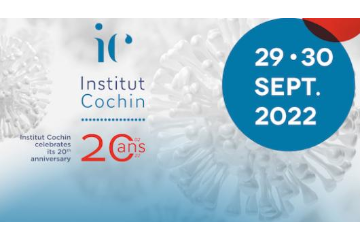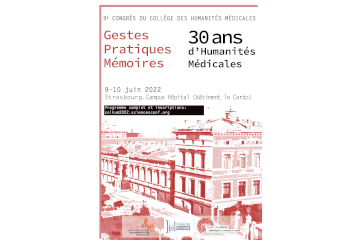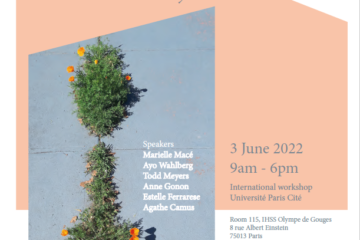Retrouvez le programme.
Argument
Cette journée réunit des chercheurs qui s’intéressent au domaine de la santé avec des approches et des méthodologies empiriques différentes : les sciences sociales, la « philosophie de terrain » ou l’éthique empirique. Les intervenants explorent ces différentes perspectives ainsi que leurs avantages et difficultés respectifs. Ils s’intéressent en particulier à la façon dont les philosophes peuvent contribuer à élaborer des approches normatives innovantes dans ce domaine de recherche.
Programme
9h – 9h30 Introduction
- Marie Gaille (SPHERE UMR 7219, University of Paris/CNRS, Directrice de l’Institut national des sciences humaines et sociales (InSHS))
9h30 – 10h45 “Field philosophers” : what are their objectives and tools ?
- Digital humanism, ethics of care and individualization in light of new E-health measures: Giovanni Scarafile (University of Pisa) & Roberto Greco (University of Salento)
- Collaborative research between field philosophy and medical sciences: From disappointed expectations to long-lasting collaborations : Agathe Camus (Post-Doc, SPHere, UMR 7219, Université de Paris/CNRS) & Mathilde Lancelot (maitresse de conférence, Centre François Viète, Université de Nantes)
11h – 12h15 Making new forms of justice effective : a new task for field philosophers ?
- Discursive justice through empirical ethics? Possibilities and challenges of empirical approaches considering marginalized groups in health care ethics : Silke Schicktanz (University Medical Center, Göttingen, Medical Ethics and History) & Mark Schweda (University of Oldenburg, Ethics in Medicine)
- Narrative methods as a safe space to facilitate affective justice in health and social care: Brenda Bogaert (Post-Doctoral researcher, Healthcare Values Research Chair, Léon Bérard Center Lyon, and S2HEP Research Center, University of Lyon 1, Claude Bernard)
13h30 – 14h45 Medical professionalism : How can field philosophers help bridge the gap between theory and practice ?
- Professional ethics in healthcare: Are we speaking about the same ? : Sabine Salloch (Professor,Hannover Medical School, Germany)
- Between philosophical controversies and medical practice in intensive care: how can fieldphilosophers contribute to both ? : Marta Spranzi (Associate professor, UVS Medical school,clinical ethics consultant, AP-HP, R2E Unit, CESP U1018 University Paris-Saclay/INSERM)
15h – 16h45 Patients and mental health care professionnals : can field philosophy contribute to improve practices ?
- Persuasion or coercion? An empirical ethics analysis about the use of influence strategies in mentalhealth community care : Emanuele Valenti (Senior Research Associate in Health Care, BristolMedical School)
- From addiction care to Pascal’s wager: how to help someone who has “fallen” to recover ? : Margaux Dubar (PhD student and lecturer at Jean Moulin Lyon 3 University, member of IRPhiL and the Healthcare Values Research Chair)
17h – 18h15 Empirical Bioethics or “philosophy in practice” : which directions for further research ?
- Is empirical bioethics philosophy in practice? Reflections on the rationale, framing and future ofempirical bioethics : Jonathan Ives (Professor, University of Bristol)
- A comparison between the basic assumptions of empirical ethics and the practice of empirical research in philosophy: Catherine Dekeuwer (Associate professor, Lyon 3 Jean Moulin University,IRPhiL and SPHere UMR 7219, University of Paris/CNRS)
Organisation scientifique
- Marta Spranzi maîtresse de conférences HDR, UVSQ Medical School, clinical ethics consultant, AP-HP, R2E Unit, CESP U1018 University Paris-Saclay/INSERM, et
- Catherine Dekeuwer, maîtresse de conférences HDR, Lyon 3 Jean Moulin University, IRPHIL & SPHERE UMR 7219, Université de Paris/CNRS
Avec le soutien de :
MSH Paris Saclay, Unité R2E CESP U1018 Université de Paris Saclay, IRPHIL Université de Lyon 3 Jean Moulin et laboratoire Sphère UMR 7219, Université de Paris


